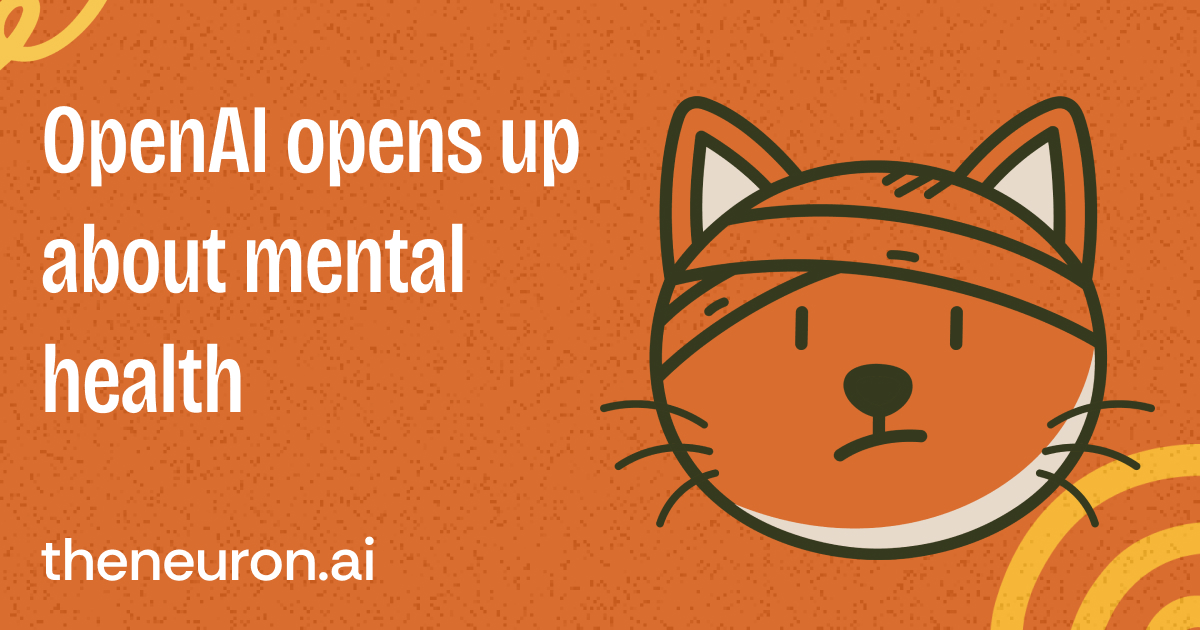Welcome, humans.
According to The Verge, ChatGPT-5 has been delayed to August. That said, it’s already been spotted in Copilot, and right now, it looks like o3-alpha (the one new confirmed OpenAI model) is competing against two new models called Starfish and Nectarine in the LM Arena (where AI models are released and tested anonymously).
Models usually test for about a week or two in the arena before going live, which lines up with the early August timeline.
But why so many models, and which is GPT-5? They all are (there’s a main model, a mini model, and a nano model, so presumably we’ll see all three tested before launch).
Meanwhile, ChatGPT Agent is now fully rolled out to $20 a month Pro and Teams users:
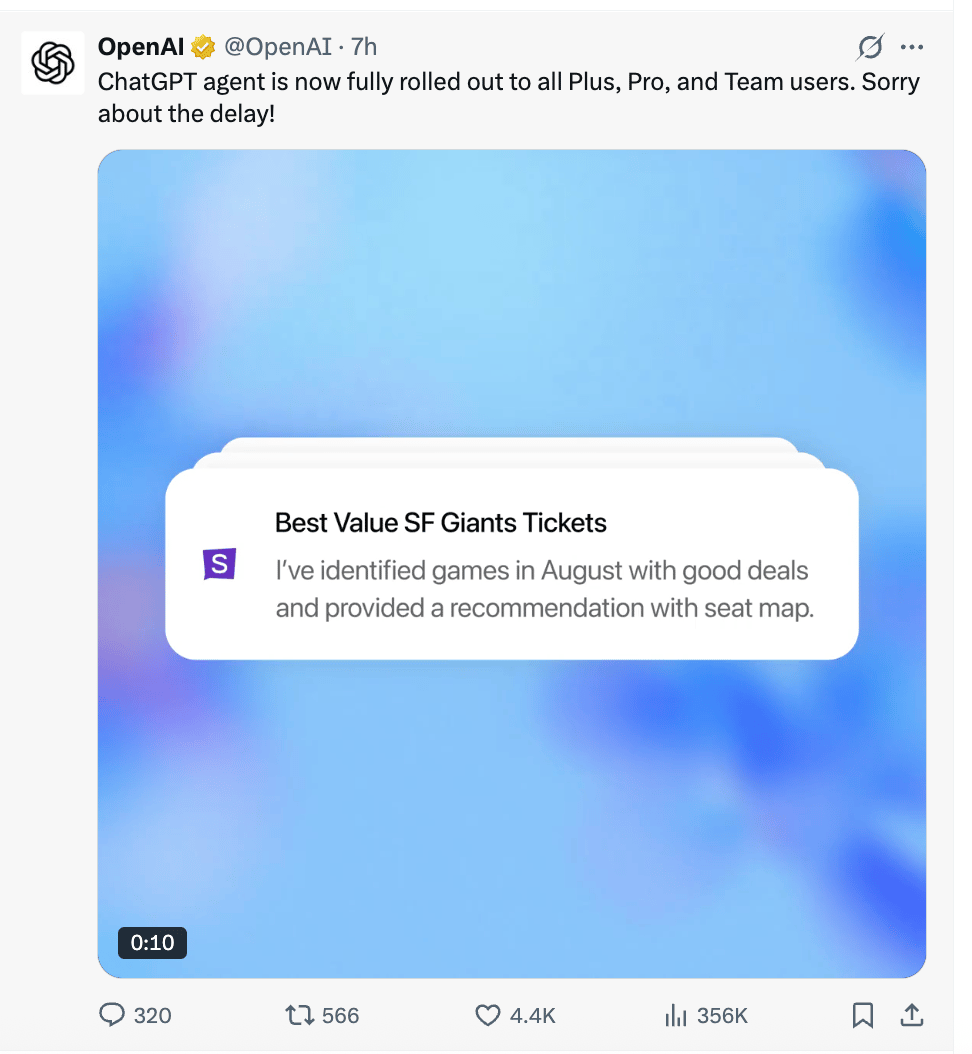
Here’s what you need to know about AI today:
- Ash launched as the first real AI bot built for therapy.
- OpenAI got a few extra billi for its $30B funding round.
- Claude Code launches sub-agents feature.
- LeBron James sued an AI company.

Do we finally have an AI tool that's custom-built for therapy?
An OpenAI investor spent six figures on AI girlfriends and had a public meltdown about GPT-5. Yeah, “ChatGPT psychosis” is now a thing—and its a big deal.
Here's what's happening: People are turning ChatGPT into their therapist. One Reddit user's husband got so hooked he renamed it “Chad” (as a joke, but now its serious) and talks to it constantly through headphones, seeking reassurance for his anxiety. When his actual therapist told him to stop, he threatened to cancel therapy altogether.
Even Sam Altman acknowledges this issue and thinks this is “bad and dangerous.”
The problem? ChatGPT is built to be your yes-man. Ask it “I'm angry,” and it'll respond with something like “I'm so sorry you're angry, it's totally normal to be angry” followed by three generic coping tips.
It's designed to validate everything you say because that's literally how it was trained—human annotators picked the “nicer” responses to please you, not push you to make a breakthrough.
Enter Ash, an AI actually built for therapy that just raised $93M from a16z, Felicis, and others.
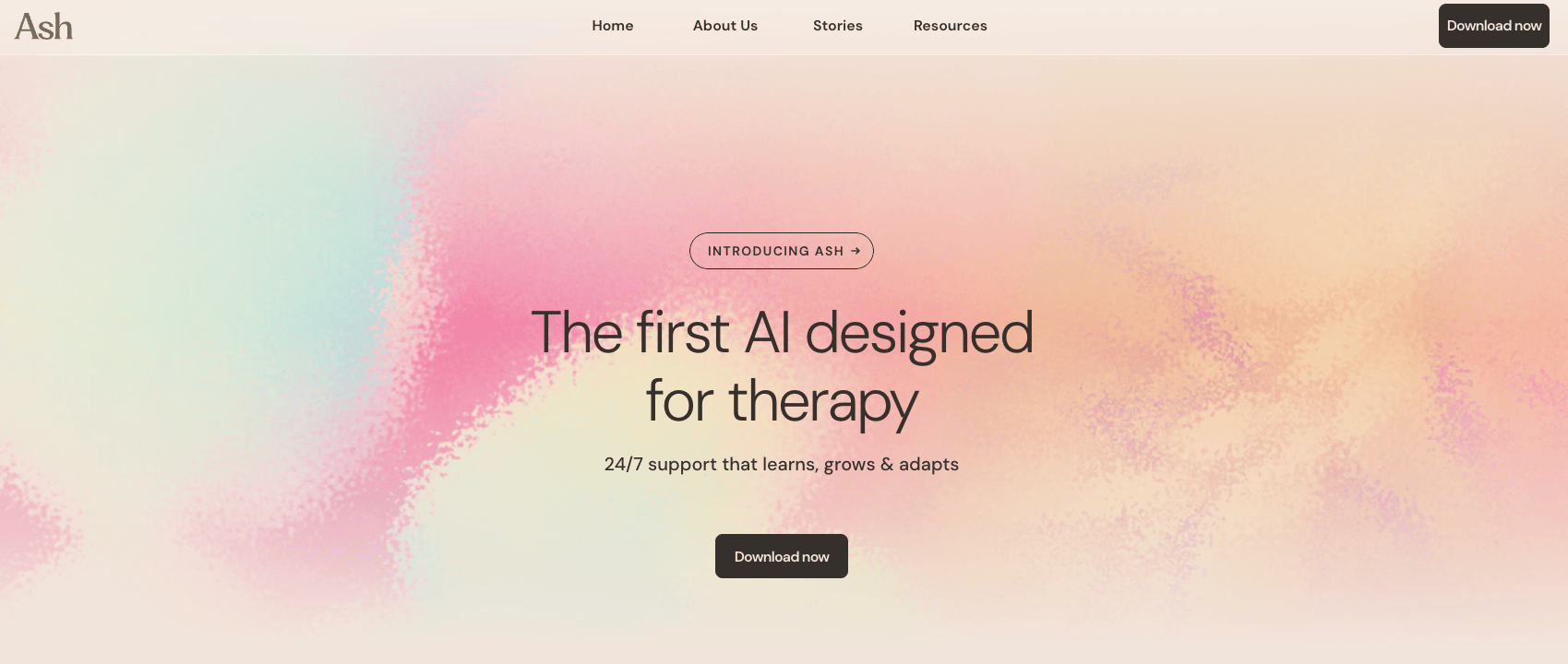
Founded by Neil Parikh (the Casper mattress guy) and machine learning engineer Daniel Cahn, Ash is trained on actual therapy sessions. The ratio of mental health providers to people who need care is 1 to 30,000, and most people only make it to one therapy session before giving up.
Here's what makes Ash different:
- It won't always agree with you. Say “I'm angry” and it might ask “Why is anger a bad thing?” instead of immediately validating.
- Trained on therapy techniques like CBT, DBT, and psychodynamic approaches.
- Uses reinforcement learning to notice when you actually make progress vs. just feeling good.
- Available 24/7 for a fraction of traditional therapy costs
- 50K people already in beta.
Why this matters: The launch comes as Bloomberg reports AI's mental health costs are “adding up”, with AI brain rot context and psychosis becoming real concerns.
Plus, actual studies are showing why trusting your mental health with ChatGPT is a really bad thing:
- For example, a Stanford study showed that both ChatGPT and current commercial therapy bots are terrible at recognizing paranoid delusions and can actually make them worse.
- They found language models encourage delusional thinking and fail to respond appropriately to mental health crises.
- Ash aims to change that with a totally new approach.
But, while Ash represents a huge step forward from using ChatGPT as your therapist, the Stanford researchers are clear: AI should NOT replace human therapists yet. Think of it more like having a really smart journal that talks back; helpful for processing thoughts at 2am, but not a substitute for professional help when things get serious. Also, as Sam points out, your AI chats are not privileged conversations like real therapy sessions are (yet).
Our take: The main thing we like about Ash is that it encourages you to avoid using it all the time, and instead, increases your human support network. This feels critical. An under-talked about aspect of AI is that the more you communicate and rely on a neural network, the less you communicate and rely on your human network. It is SO important to have real people in your life, folks. As good as AI gets, never forget that.

FROM OUR PARTNERS
Don’t gamble with your AI product launch
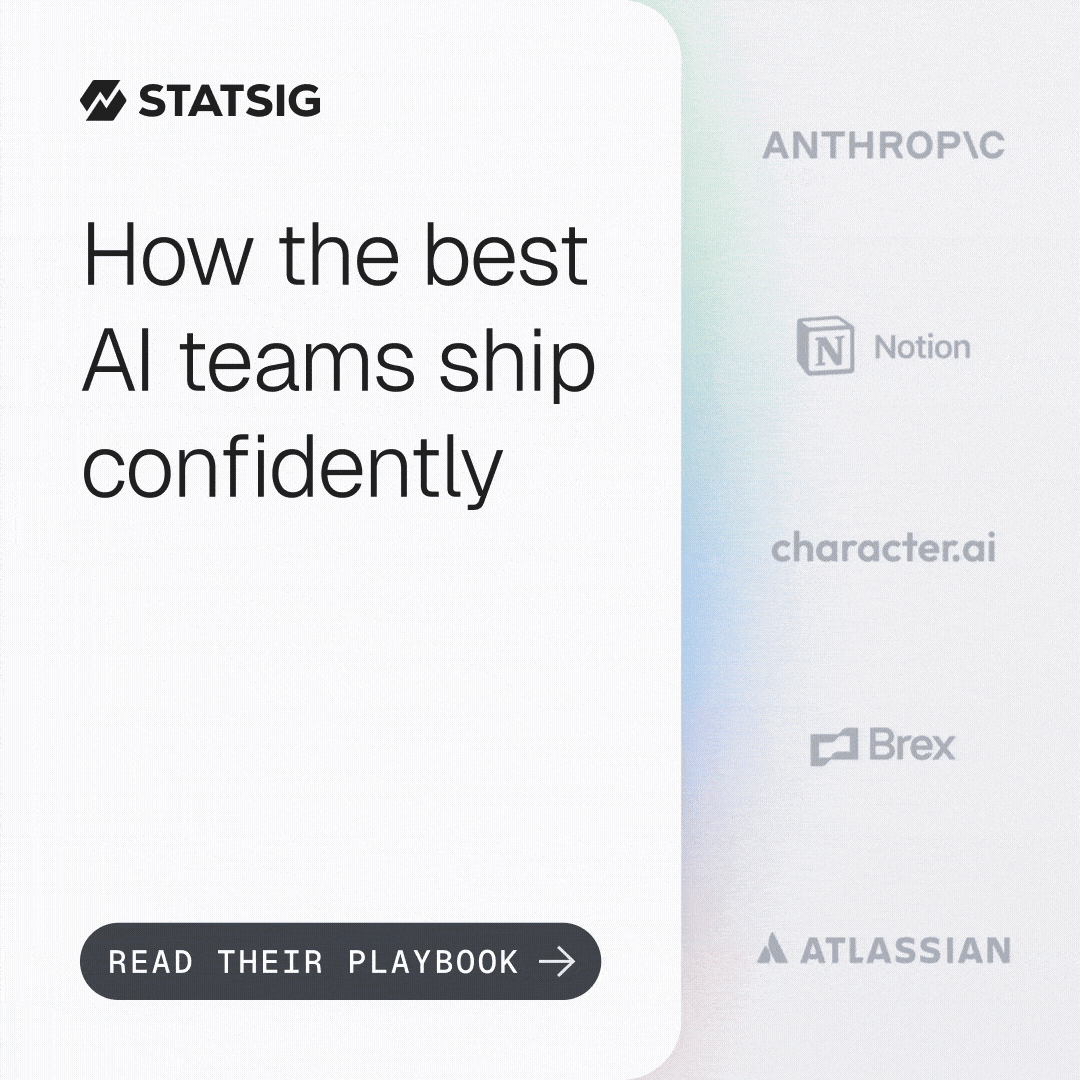
AI broke the one thing product teams could rely on: predictable outcomes.
Even features that crush model benchmarks can completely flop with real users.
This uncertainty is paralyzing. You're accountable for outcomes you can't control or predict.
That's why companies like OpenAI and Notion partner with Statsig (that's us—a product development platform built for testing and scaling AI products).
We put together a playbook breaking down their AI teams’ 3-layer framework for launching AI products:
- Test models/prompts offline.
- Validate with real user experiments.
- Monitor for post-launch failures.

Prompt Tip of the Day
Here’s a cool prompt tip from X for working with Google’s Veo 3 video model:
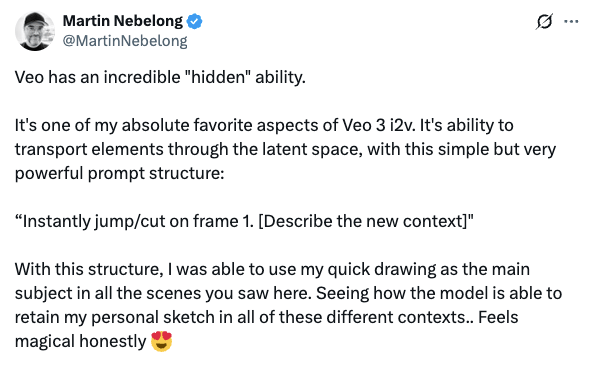
Use “Instantly jump/cut on frame 1. [Describe the new context]” to use your own drawings or starting imagery and then generate the video content from there.
Another prompt tip for Veo 3 going around is using JSON to prompt. Here’s an older guide on how to do this, and an example prompt outline (and the result).
Now, does that look too complicate for you? Easy! Just ask the AI to convert your idea into JSON for you, following that example format (and the guide provided).
Check out all of our Prompt Tips of the Day from June here.
P.S: Completely new to AI? Start here!

Treats To Try.
*Asterisk = from our partners. Advertise in The Neuron here.

- *Flow is the AI voice keyboard that turns speech into polished text in any iPhone app—Slack, iMessage, Gmail, Notion—5× faster than typing. Free plan with weekly word cap—try it here.
- Google launched Web Guide, an AI feature that clusters search results by topic instead of ranking them linearly, using Gemini AI to help users explore complex topics without reformulating searches.
- Nia answers your questions about your codebase, automates code reviews, and integrates with Slack to boost your development speed (raised $850,000)—no pricing details.
- DispatchMail gives you a local agent that batch-processes your emails with custom prompts in a separate workspace you control (open source project, but requires OpenAI API key).
- Lumo is a private assistant that encrypts conversations so only you can access them, with features like disappearing chats and secure file analysis—free to try, then $13/month.
- Higgsfield Steal lets you recreate any image from the web with yourself as the subject, keeping the same pose, lighting, and outfit.
- Here’s how to create MCP servers that connect ChatGPT to your company's internal data so you can search customer records, docs, and proprietary databases during your chats (also, check out this 75 page guide to MCPs!).
- Claude Code just launched sub-agents, so you can create specialized coding agents (like a “code reviewer” or “test writer”) that each have their own context window and custom instructions, so you can automate different parts of your development workflow without cluttering your main conversation.
- Side note: Claude Code’s gotten so popular, and Anthropic (its maker) so unreliable (due to the demand), someone made an “Is Anthropic down?” tracker.
- You can also apparently use Claude Code as a video editor, though just because you can doesn’t mean you should (this X demo cost $36 in API credits!)
See our top 51 AI Tools for Business here!

Around the Horn.
- Founders Fund and Dragoneer each invested $1B+ in OpenAI's newly reopened $30B funding installment, with Oracle providing 4.5 gigawatts of computing power for over 2M chips.
- Amazon closed its Shanghai AI lab amid US-China tensions and cost cuts, following similar exits by IBM, Microsoft, and other US tech giants from China.
- Lebron James is suing an AI company called FlickUp because people keep making, no joke, viral videos of him being pregnant and giving birth.
For the latest AI deep dives, check out our Explainer articles here!

ICYMI: Our latest podcast episode!
In this week’s episode, Grant and Corey tackle the question: Did AI “break” school…or can it fix it?
MIT just proved AI can make you 17% dumber or help you learn 6x faster—depending on how you apply it. Since OpenAI says using AI to learn is the #1 most common use-case (20% of all US ChatGPT messages), this episode is a MUST watch for understanding the implications (and some new tricks) for using AI in education.
Listen & Watch now on YouTube | Spotify | Apple Podcasts
Want to reach 550,000+ AI professionals through podcast sponsorship (or newsletter ads)? Fill out this quick form.

Intelligent Insights
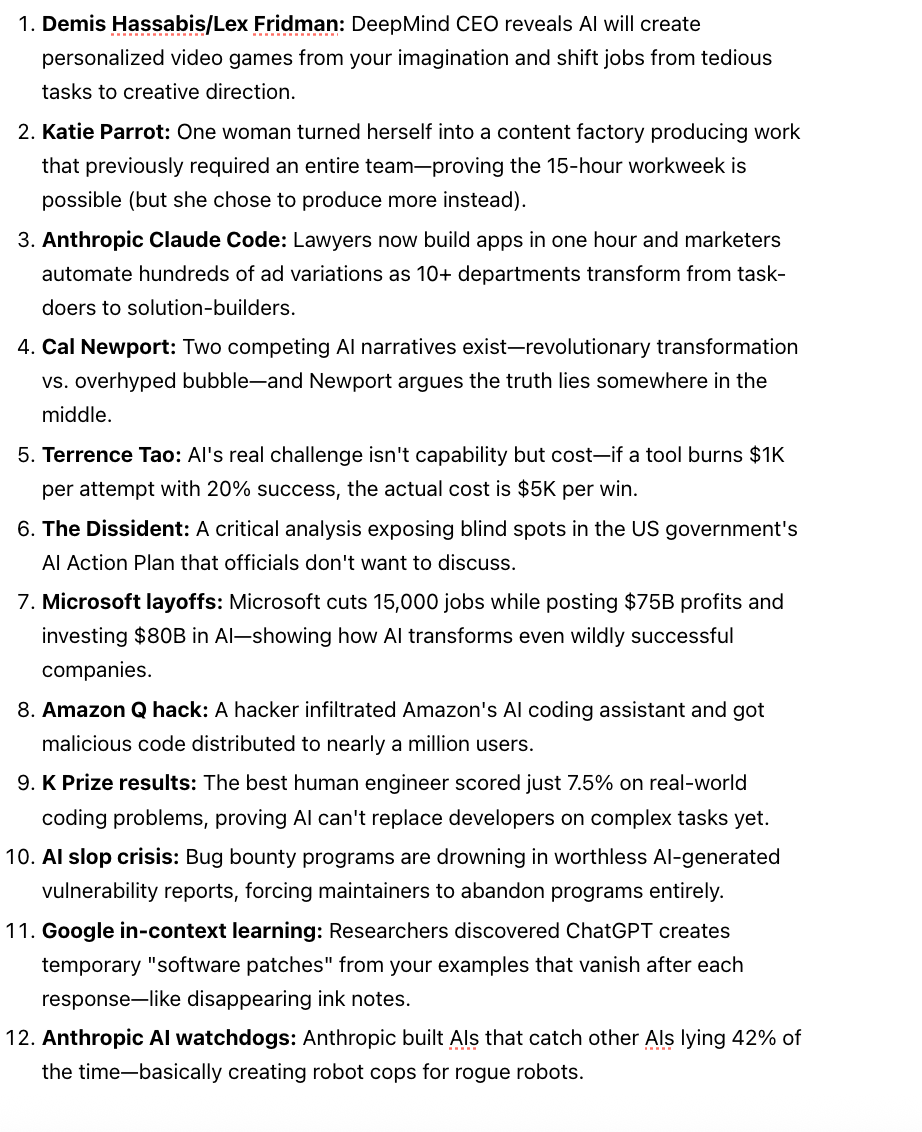
Read this week’s Intelligent Insights on the website here.

A Cat's Commentary.
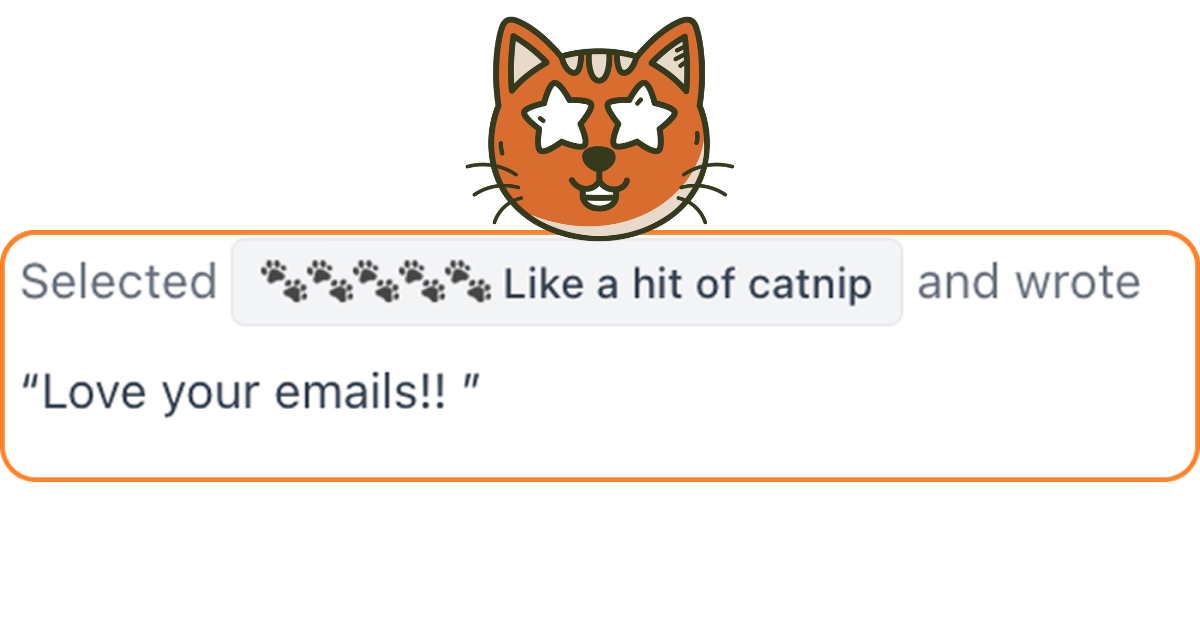


.jpg)

.jpg)


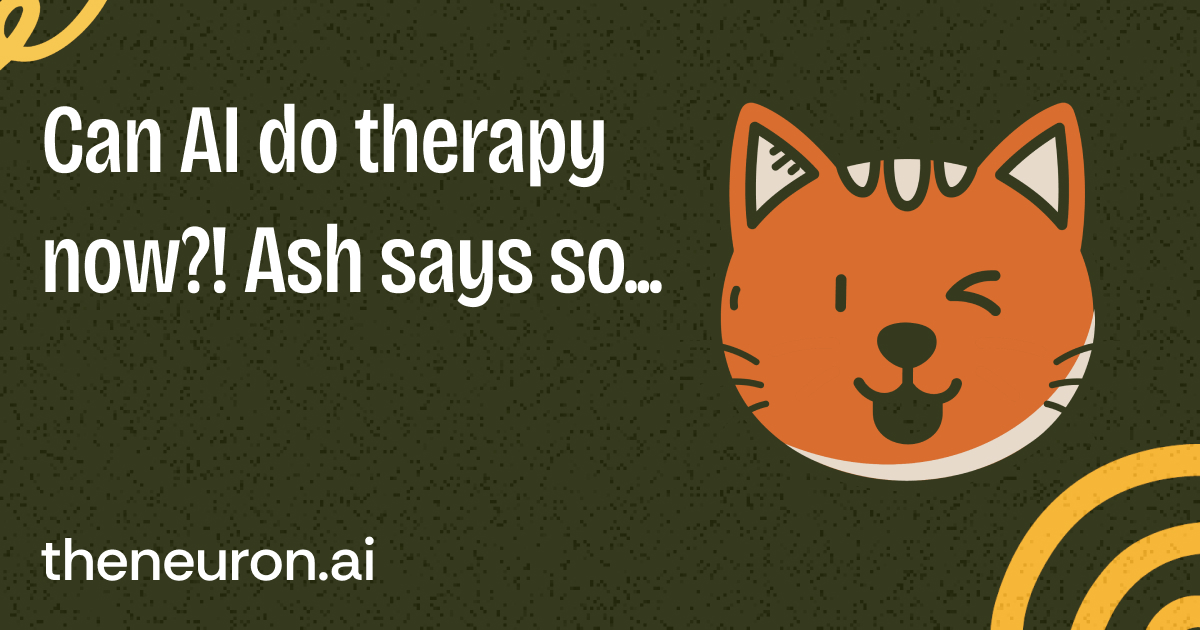



.jpg)
